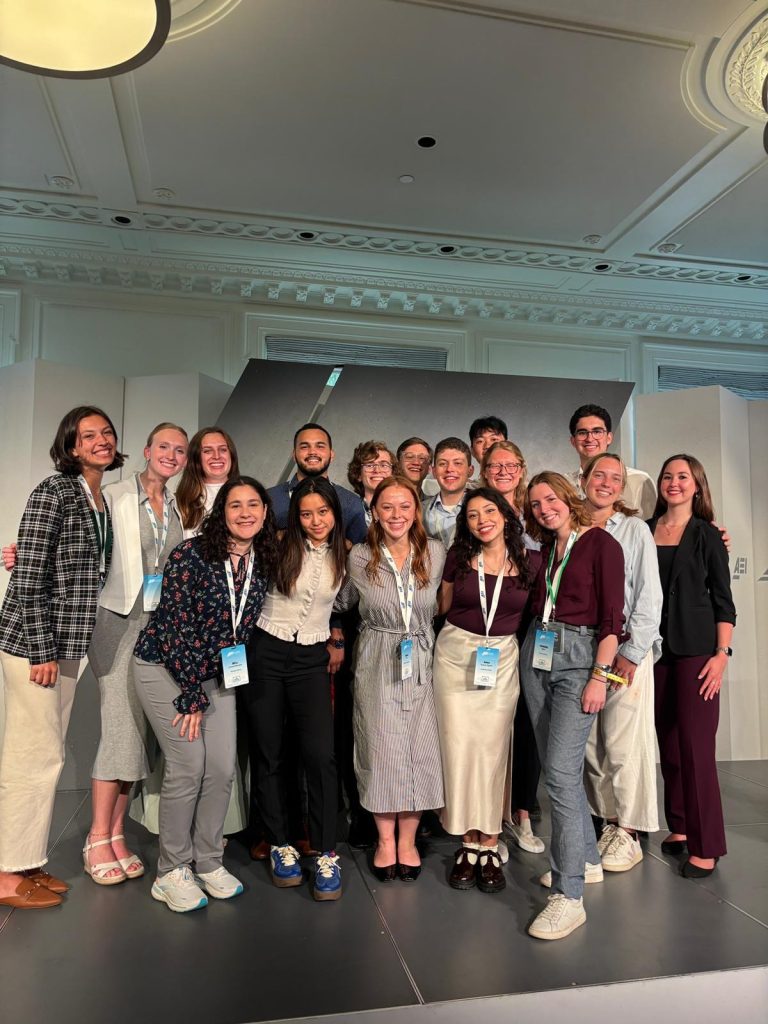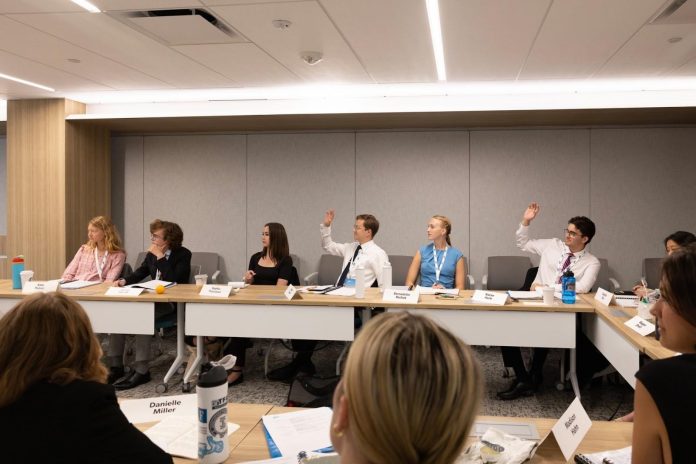I braced myself for indoctrination. But that’s not what I found.
As a left-leaning college student, I never imagined I would spend a week at a conservative think tank. It was awkward and challenging, but it was also one of the most rewarding experiences I’ve had. I didn’t agree with everything I heard at the American Enterprise Institute’s Summer Honors Program, but I left with sharper thinking, unexpected friendships, and a deeper belief in the value of honest dialogue. If you tend to tune out those on the opposite side of the political spectrum, my story just might change your mind.
How did I find out about AEI? In Mid-February, I received an email from my political science professor about the AEI Summer Honors Program in Washington, D.C. I started the application without knowing how conservative the organization’s founding pillars really were. It looked like great professional development, and more immersion in a subject I love. I thought, “Oh, D.C. for the week? All expenses paid? And I get to take a class on education policy? Sign me up.”
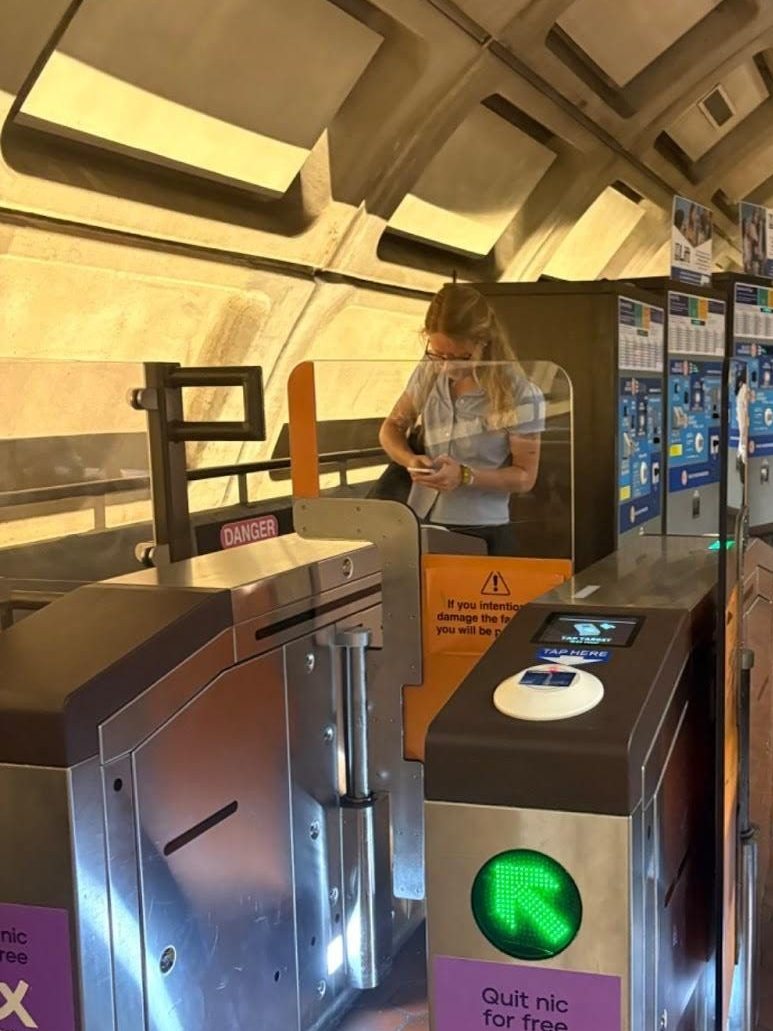
In my interview, I made a point to share that I value engaging with opposing ideas and that one of our generation’s greatest challenges is an inability to have civil discourse about political topics. I marked myself as “center-left” on the boarding survey and hoped that wouldn’t get me cut from the list. I didn’t expect to be accepted, but I got an email in March and received my Course Reader in the mail by May. On June 8, I was off to D.C.
At lunch on Day One, we learned about what a think tank is. The American Enterprise Institute, as its website states, “is a public policy think tank dedicated to defending human dignity, expanding human potential, and building a freer and safer world.”. It’s funded primarily by wealthy individual donors who profess to value the competition of ideas and free enterprise. The institution hosts fellows like Dr. Kori Schake and Sadanand Dhume, who publish research-based policy recommendations and commentary. AEI staff were clear that the institute does not direct its fellows’ conclusions—they look to foster independent thought and open intellectual competition. I had braced myself for indoctrination. But that’s not what I found.
My peers were ambitious, sharp, and, for the most part, open-minded. We didn’t all agree on school choice or whether education had to be political, but we came ready to learn. Our cohort included not only American college students, but also students from Malaysia and Chile. Some weren’t just there for the program, they also attended school full-time in the U.S., which made their international perspectives on our system even more insightful.
During the week-long seminar I selected to participate in, my peers and I dove deep into the K–12 education system, under the guidance of Dr. Michael Q. McShane. McShane is a researcher for the nonprofit advocacy group EdChoice and an adjunct fellow in education policy at AEI. While a strong proponent of “school choice”—a broad term that includes contentious policies like charter schools, education savings accounts, and voucher programs—McShane curated a diverse selection of articles for our Course Reader. Around 200 pages of readings ranged from “Black Kids Should Study Larkin,” by Tomiwa Owolade to “The Role of Government in Education” by Milton Friedman. I wondered which topics might be avoided—DEI, critical race theory, teacher unions—and whether I’d be bold enough to bring them up in what I assumed would be a room full of conservatives. I still strongly disagree with McShane and EdChoice on policy, but the experience turned out to be a great forum to push myself to defend my views (and it even turned out I had a few allies in the group).
Here’s the corny part. The most valuable aspect of the Summer Honors Program was the people. On the second day, a handful of us decided on the ultimate icebreaker: who we voted for in the 2024 election. Turns out, I wasn’t the only one who felt like an undercover agent for liberal-leaning political views. For five days, we were a tight-knit microcosm of driven, curious people. (Shoutout to the single dorm rooms at Catholic University—essential for recharging social batteries.) But when you are surrounded by a gregarious group of high-achieving individuals, there was never nothing to do. Our GroupMe lit up constantly: “Dinner plans tn?” or “Cards on 2nd floor of Walton, come join!”
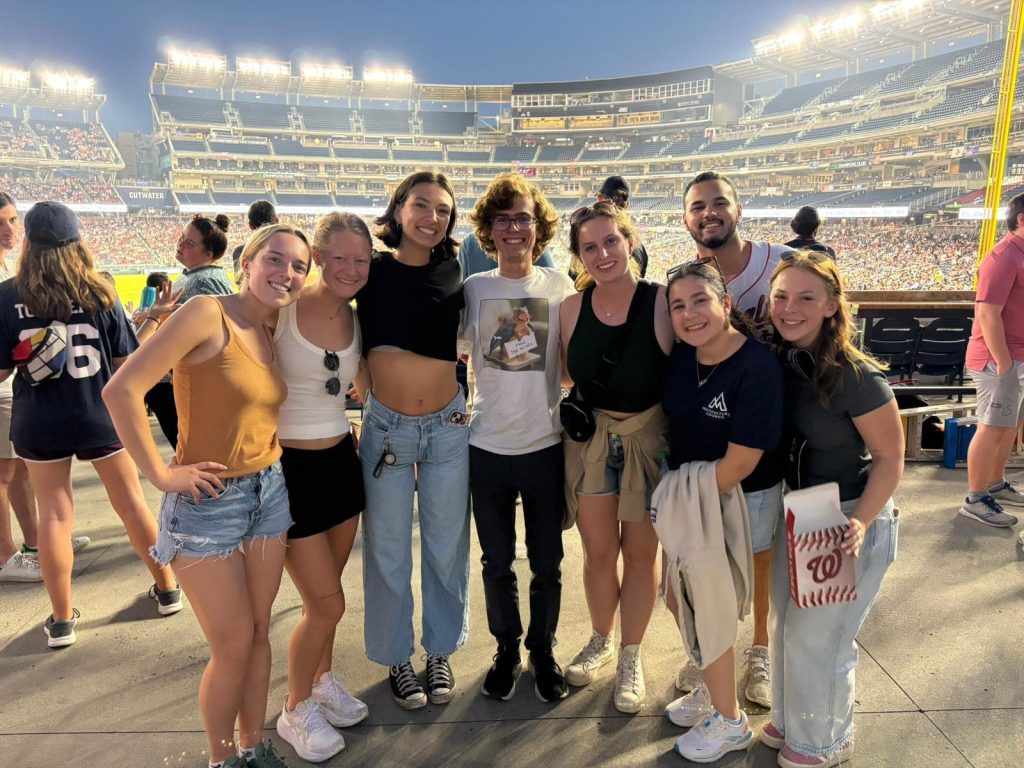
Instead of being irritating, the level of passion and intellectual rigor in many of our conversations was genuinely inspiring, even when I disagreed with the other participants. Debates carried over from the classroom into the Metro, dinners, and group outings. We took photos in front of the White House and walked around the National Mall. A bunch of us even went to the Congressional Baseball Game at Nationals Park. We sat in the nonpartisan section. Republicans won 13-2.
There were sobering moments, too, like our visit to the Department of Education (DOE). Everything about the visit depressed me. Even the building itself felt desolate. There were endless rows of abandoned cubicles, which we were told was the result of employees working remotely due to upcoming road closures for the Saturday Army parade. (We were there on Wednesday. No roads had been closed yet.)
The emptiness felt symbolic. We had entered a highly politicized space at a consequential moment in time. The Department of Government Efficiency’s (DOGE) haphazard funding cuts had reached what many of my peers at AEI and I took pride in: a nationwide, united educational front. Being inside the DOE’s walls was both disheartening and, oddly, energizing. Disheartening, because it appeared to be crumbling at the hands of an administration that doesn’t believe in its value. Energizing, because it felt like a moment that could be a catalyst for reform.
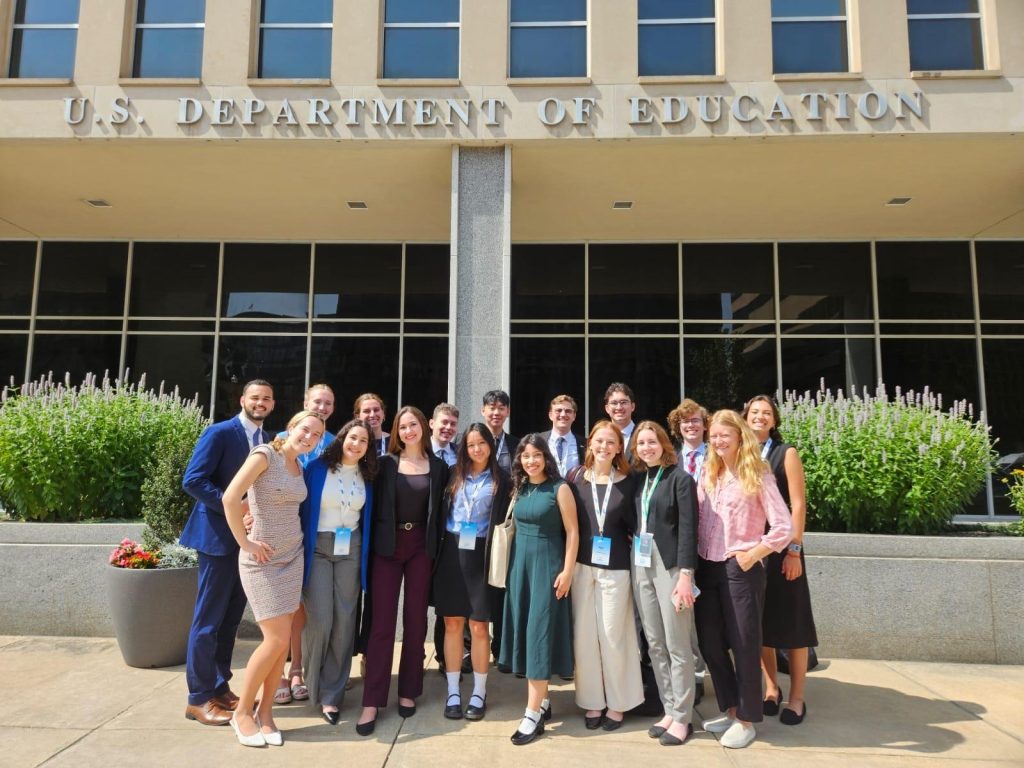
While at the DOE, we met with Principal Deputy Assistant Secretary Hayley Sanon for about thirty minutes. Sanon told us the administration’s plan was to ultimately shut it down. As she so carefully phrased it, the goal is to “cut through the bureaucracy, not the budget.” The emphasis on giving more control to states was clear. I’m not convinced all 50 states are ready to handle education funding without federal oversight. Haven’t we tried something like that before? (Articles of Confederation, anyone?)
One of our most unexpected speaker sessions came from Anna Moreland and Thomas Smith, co-authors of The Young Adult Playbook: Living Like It Matters. Their core message? A meaningful life rests on three pillars: work, leisure, and love—and Gen Z is falling short on the last two. They argued that our generation has become hyper-efficient, résumé-driven, and achievement-obsessed, often at the expense of real connection. We spend too much time on our phones and not enough time cultivating relationships that matter. At times, it felt like they were urging us—college-age students in general, and maybe even those of us in the room specifically—to start dating each other before we all ended up lonely. It was funny, but also uncomfortably real.
I wasn’t sure what AEI’s Summer Honors Program would be like, but now that it’s in the rear view, I wouldn’t trade the experience for anything. The program challenged me, not just to engage in serious, nuanced conversations about the future of American education, but to reconsider my own political beliefs. I’m even more confident in those beliefs now, precisely because my views were tested.
More importantly, I formed real friendships with people from across the aisle, people who I may not have given an ear to otherwise. There are young people who care about the future of this country’s education system. We don’t all agree on how to fix it, but that’s not a bad thing. The important thing is that we care in the first place, and can come together to find a path forward.
